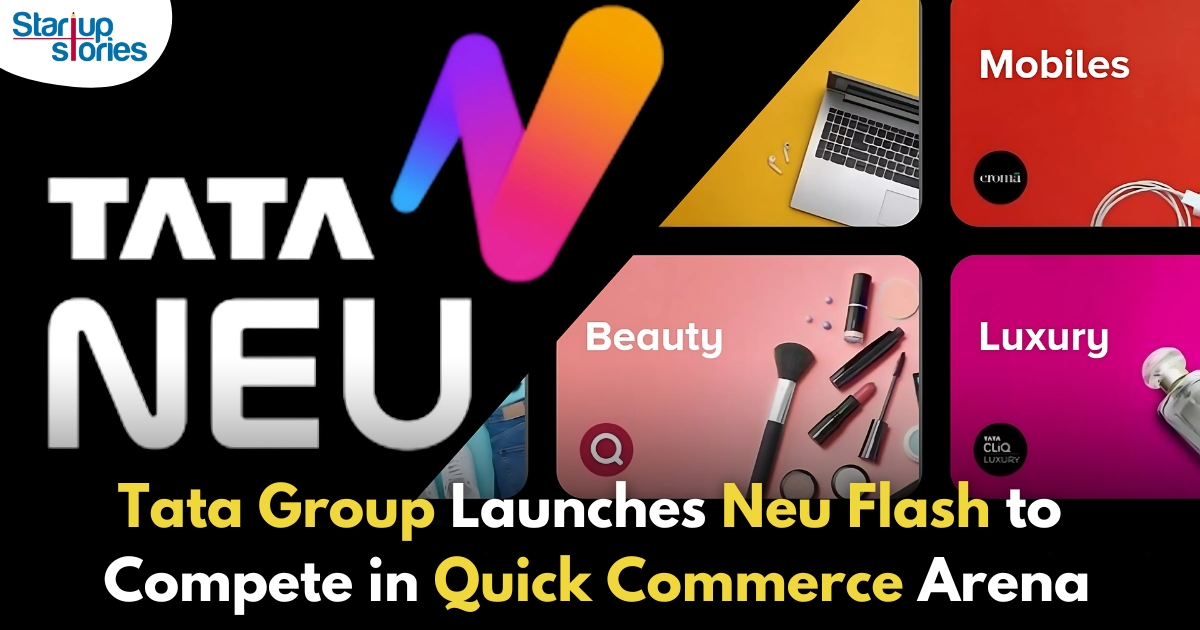The Tata Group is making its move into the quick commerce sector with the launch of Neu Flash, an extension of its e-commerce platform Tata Neu. This new service aims to compete with leading players like Zomato’s Blinkit, Swiggy Instamart, and Zepto, which currently dominate the ultra-fast delivery market.
Market Entry and Strategy
According to a report by the Economic Times, Tata joins other major players like Flipkart and Reliance Industries in the quick commerce segment. Neu Flash is set to roll out to select users soon, offering a diverse range of products including groceries, electronics, and fashion.
Product Segmentation
The grocery segment will be powered by BigBasket, while Croma will supply electronics, and Tata Cliq will manage fashion and lifestyle items. This strategic partnership allows Tata to leverage its existing resources while expanding its footprint in the competitive quick commerce landscape.
Competitive Landscape
Tata’s entry into the quick commerce space comes as Flipkart has recently launched its own service, “Minutes,” and Reliance JioMart is re-evaluating its approach after previously discontinuing its 90-minute delivery option. Currently, Blinkit, Instamart, and Zepto hold about 85% of the quick commerce market, making competition fierce as this sector continues to grow rapidly, outpacing traditional e-commerce and retail.
Recent Developments in Competitors
Additionally, Zepto is raising $150 million from local investors following a substantial $1 billion funding round in just two months. This financial backing further intensifies competition with Blinkit, which commands around 40% of the market share.
Integration with Existing Services
Furthermore, Tata’s e-pharmacy, 1mg, which delivers medicines within a few hours in select regions of Delhi-NCR, is expected to fully integrate with Neu Flash as well. This integration will enhance Tata’s overall service offerings and provide a more comprehensive shopping experience for users.
Future Growth Potential
As consumer preferences shift towards faster delivery options, Tata’s Neu Flash aims to capitalize on this trend by providing a seamless shopping experience. The company’s established brand reputation and extensive distribution network could give it a competitive edge in attracting customers who prioritize convenience.
Conclusion
Tata’s entry into the quick commerce sector with Neu Flash marks a significant development in India’s rapidly evolving retail landscape. By leveraging its existing platforms and partnerships, Tata aims to carve out a substantial share of the market currently dominated by established players like Blinkit, Instamart, and Zepto.
As this initiative unfolds, it will be crucial for Tata to effectively execute its strategy and differentiate itself in a crowded marketplace. The success of Neu Flash could redefine consumer expectations for delivery speed and service quality in India’s burgeoning quick commerce sector.


pieregistrēties binance
February 19, 2025 at 2:05 am
Thanks for sharing. I read many of your blog posts, cool, your blog is very good.
Registrera dig
May 10, 2025 at 11:59 am
Your point of view caught my eye and was very interesting. Thanks. I have a question for you.
Registrera dig
May 31, 2025 at 5:28 am
Your point of view caught my eye and was very interesting. Thanks. I have a question for you. https://accounts.binance.com/pt-BR/register-person?ref=YY80CKRN